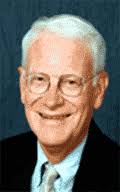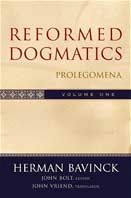Reading: Basics of Biblical Hebrew
Enjoying: The company of my busy wife. She made excellent biscuits tonight for dinner, and now we're enjoying extra watermelon. MMmmm...
Listening: B.Y.O.B. and Chop Suey and Question! by System of a Down. Go ahead, count all the other blogs you're reading that listen to System of A Down.
It was an excellent day today, seeing as how I finally had my wife back from her TBI wives' retreat. My family was up to celebrate the holiday and my dad's birthday (we got him a pocket pc - a Dell Axim x3).
I have been thinking more and more about the uselessness of the term "evangelical" to describe where I am at. Much more helpful, it seems, would be to say that I am a Nicene, confessional, Protestant, Reformed, Baptistic Christian committed to the sola's of the Reformation with strong high church and Kuyperian leanings. Of course, that is too much to easily say, and given today's climate, even that won't carry much baggage given enough time (and sinful card-carriers).
The problem with "evangelical" is that there is no objective body to assign, discipline, or revoke the label. (Its still all a power relationship, a la Derrida.) Too many people are allowed too much latitude in an ala carte attitude towards too many theological opinions. When couples like Greg Boyd/R.C. Sproul, Pinnock/Boice, and Strickland/Duncan all can wear the moniker "evangelical," the name loses a serious categorizing power. What do the theological beliefs reflected in the above names hold in common that could not be summarized in the term "Christian?"
I learned to think about catholicity, unity and heresy in terms of concentric circles. At the outermost edges you have theistic beliefs - there is something greater than man in existence. This is the aposphere inhabited by pantheism, henitheism, panentheism, etc. Taking one of these categories - monotheism - we find Judaism, Isalm, and Christianity.
Within Christianity, Roman Catholic, Eastern Orthodox, and Protestant Christianity exist. Now, we COULD say that the couples mentioned above might fit Protestant Christianity. However, they are not "protesting" Rome in any meaningful sense. That is, half of the men, Boyd, Pinnock, et al do not hold to the five solas, and justification by faith alone apart from works is not the article by which the Church stands or falls. So they are not Protestant in the way the term was historically used.
Perhaps a better term for the men on that list (that weren't reformed) is "American Christian." American Christian has either little theology or culturally influenced theology. It focuses on the subjective, the emotional, and the intuitive. It is grassroots, congregational, and often politically conservative (though often vehemently denying it - there are currents on this issue).
Somewhat coincidently, the characteristics of American Christianity have very few things in common with my own spiritual identity. I am at the opposite poles of many of the above spectrums.
Personally, I see nothing wrong with being identified by our denominations, and then maybe a qualifier with how ardently we pursue our denominational distinctives. For instance, one might be a "conservative Baptist" or a "confessional Presbyterian." A "confessional Lutheran" and "Wimber Vineyard" and "Westminsterian Baptist" would all be conceivably much more like minded, theologically harmonious, and biblically unified than an ELCA, Foursquare, and General Baptist could ever be... or even to denominational brothers. Currently, the denomination I have sworn allegiance to (gulp) is the BGC. However, there are churches within the denomination that are lightyears from where my congregation stands on a host of issues, and we from them.
There are many benefits to such a strategy. First of all, there isn't the cultural confusion that occurs when we hear that "evangelicals hold position P about political issue I." Secondly, there is real communication, discipline and accountablility - the local Church. When someone gets out of line, there is a tangible way to deal with it.
So, is What the Thunder Said going officially "evangellically free?" Um... yeah, probably. I find it doesn't help my "witnessing encounters" (evangelical lingo) to identify myself with them in front of a pierced Goth or politically liberal college kid. Now, our speech in front of other believers should be different, so I won't force anyone who hasn't thought through these issues to embrace "anti-evangelicalism."
So move over, Nietzche. Evangelicalism, and its neo-legalist god, is dead. Exult, O shores, and ring, O bells! Everyone, back to your denominations, and bar the doors on your confessions.
Similarly, go check out Dr. C. Matthew McMahon's article at A Puritan's Mind.































































